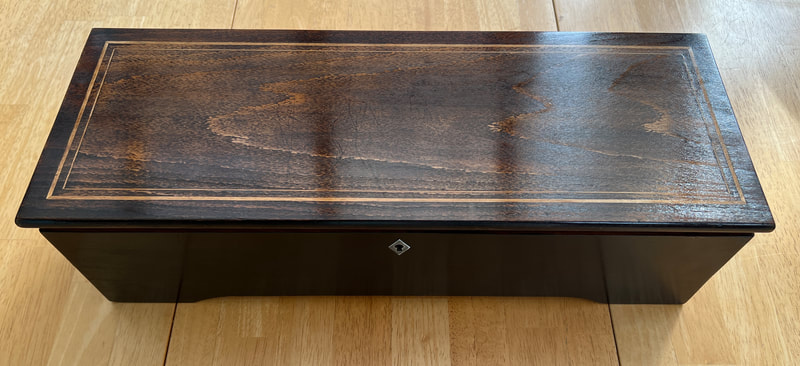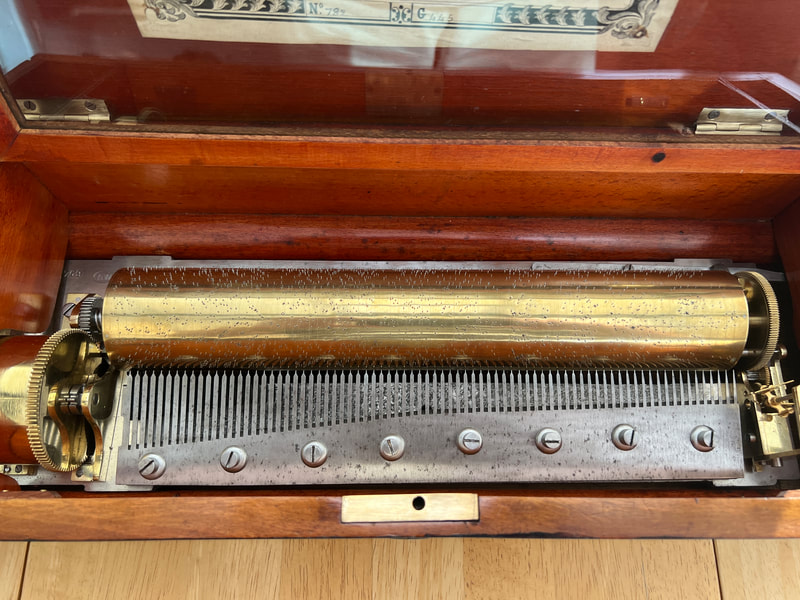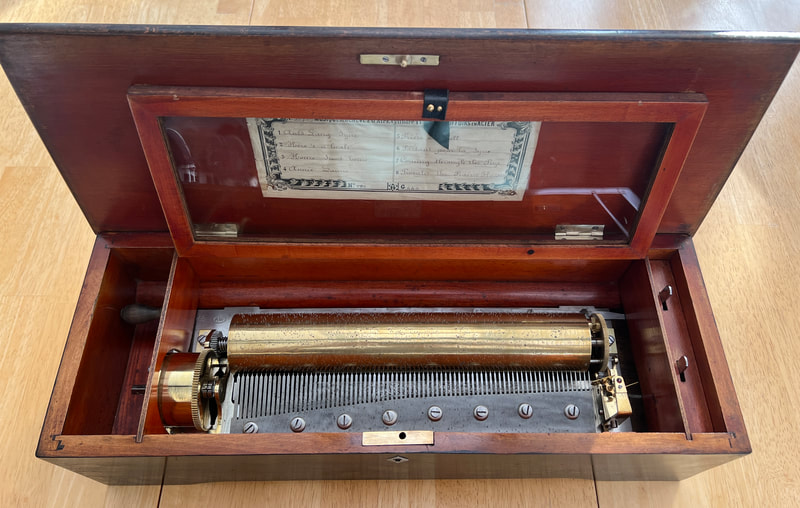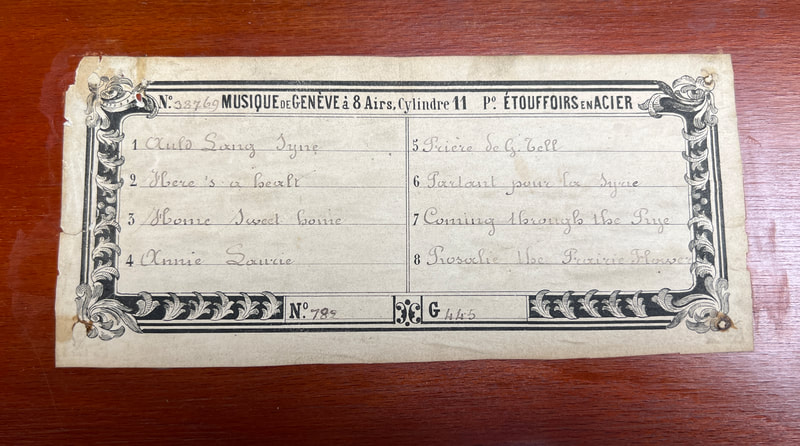8/79 Cartel by L'Epee circa 1872
Bought at Auction in September 2021 - arrived in better condition than expected.
Probably originally sold through agent Adolphe Woog due to the AW oval cartouche stamped into the bedplate.
Superb tune arrangements.
Probably originally sold through agent Adolphe Woog due to the AW oval cartouche stamped into the bedplate.
Superb tune arrangements.
The mechanism has been cleaned and serviced.
The comb has been tuned and re-dampered by The Music Box Restorer/
The case has been restored and re-polished.
The comb has been tuned and re-dampered by The Music Box Restorer/
The case has been restored and re-polished.
Tunes
|
|
Tune 1
Auld Lang Syne Traditionally, it is sung to bid farewell to the old year at the stroke of midnight on New Year's Eve/Hogmanay. By extension, it is also often heard at funerals, graduations, and as a farewell or ending to other occasions; for instance, many branches of the Scouting movement use it to close jamborees and other functions. The text is a Scots-language poem written by Robert Burns in 1788 but based on an older Scottish folk song. In 1799, it was set to a traditional tune, which has since become standard. |
|
|
|
|
Tune 3
Home Sweet Home is an American Civil War song, originally an opera called Clari, or The Maid of Milan. The lyrics were written by John Howard Payne and set to music composed by Sir Henry Bishop in 1823 |
|
|
Tune 4
Annie Laurie is an old Scottish song based on a poem said to have been written by William Douglas (1682?–1748) of Dumfriesshire, about his romance with Annie Laurie (1682–1764). The words were modified and the tune was added by Alicia Scott in 1834/5. The song is also known as "Maxwelton Braes". |
|
|
Tune 5
Piece de Guillieme Tell - A not so well known but delightful part of this epic overture by Rossini |
|
|
Tune 6
Partant pour la Syrie ("Departing for Syria") is a French patriotic song, the music of which was written by Hortense de Beauharnais and the text by Alexandre de Laborde, in or about 1807. |
|
|
Tune 7
Coming Through The Rye is a poem written in 1782 by Robert Burns (1759–1796). The words are put to the melody of the Scottish Minstrel "Common' Frae The Town". This is a variant of the tune to which "Auld Lang Syne" is usually sung—the melodic shape is almost identical, the difference lying in the tempo and rhythm. |
|
|
Tune 8
Rosalie the Praire Flower (1855) Text by Frances Jane Crosby Music by George Frederick Root |



